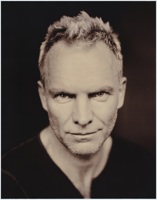In Evin Prison (Source: Huffington Post); Iran’s Harshest Sentence for an Innocent Scholar (Source: New York Review of Books); Iran Sentences Academic Linked to Protests (Source: National Public Radio)
Iranian American scholar Haleh Esfandiari, who served in Evin prison at the same time as Kian in 2007, has been featured recently speaking about Kian’s rearrest as she discusses her newly published book, My Prison, My Home: One Woman’s Story of Captivity in Iran:
In a review of My Prison, My Home, Claire Messud notes in Huffington Post
“…[Not losing one’s grip on reality] is the struggle for any prisoner in such a situation; but it is also the struggle for the Iranian people at large: How not to succumb to the regime’s view of the world? Theirs is a society of constant contradictions, of mirrors and masks, of both authority and a theater of authority, to which they must subscribe. They, too, are terrorized by prolonged uncertainty, never knowing the limits of what is allowed–can women show their hair in public this month without fear of arrest? Can weddings allow dancing in private homes this year, or will the morals police break down the door? Can the press question the regime this week, or will the newspapers be shut down? Can you demonstrate freely today, or might you be arrested, tortured, and killed? …”
On Kian’s arrest in he New York Review of Books blog :
“…The [show] trial has been a travesty of justice. The initial indictment was directed against everyone at once. There were only three sessions. Some of the accused were paraded before television cameras to make coerced confessions. (Kian made a statement too; he said that the US and Europe desired to bring about change in Iran, but that he had no knowledge of a plot). Kian did not even get to choose his own lawyer and had to make do with a government-appointed one, who said he will appeal.
The trial is further evidence that some of the most hard-line elements in the Intelligence Ministry and the Revolutionary Guards are now setting domestic policy. They have used the trial to attempt, yet again, to persuade an ever-skeptical Iranian public that the Islamic Republic is indeed in grave danger of a “soft overthrow” plotted by England and America, to settle scores with their political adversaries, and to rid themselves, once and for all, of the reformers and moderates in their midst. The irony is that Kian was within two weeks of leaving for the US to take up a long-standing invitation to teach at Columbia University…”
“…I never believed that they would arrest [Kian] and charge him with the same accusations that they had leveled against him and against me in prison because I knew that Kian was keeping a low profile and he was not a member of the reformist movement. He was not part of any political activity or party. And he was just leading a very quiet life, translating books and writing books…”

 Sting makes appeal for Kian Tajbakhsh and Iranian detainees.
Sting makes appeal for Kian Tajbakhsh and Iranian detainees.